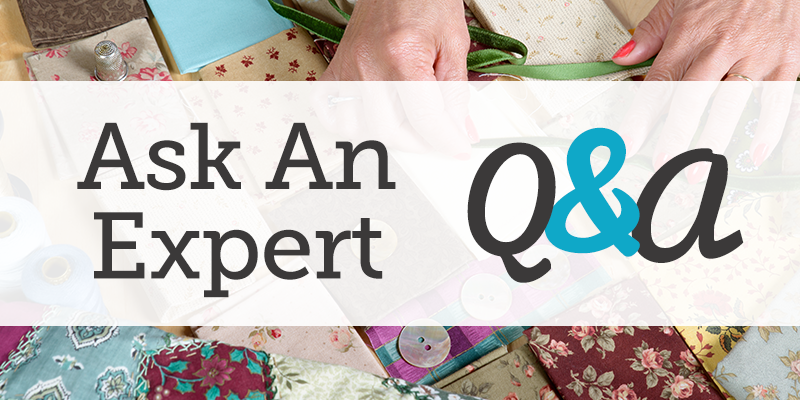

I am very new to patchwork, and wanted to ask about the most helpful tools I should buy to start my very first patchwork quilt (apart from a sewing machine!). Which fills I should buy? What are the most efficient rulers I should have? I see a lot of quilters using a rotary cutter too; should I get one of those? Thank you!
Submitted via FacebookWelcome to the wonderful world of quilting! Kelly Related Article: Beginner’s Guide to Quilting: Essential Tools & Supplies Do you have a quilting question you’d like answered by an expert? Email your question to editor@nationalquilterscircle.com or reach out to us on Facebook. Please note: questions may be edited for clarity and relevance.
- A good-quality cutting mat—I recommend a 36 x 24-inch self-healing mat
- A rotary cutter—you’ll get a lot of use out of this
- 8½ x 24-inch ruler
- 6½ x 6½ -inch ruler
- 12½ x 12½-inch ruler
- A good book will help you immensely too—anything by Carol Doak is a good bet

I would prefer to not (underlined) have pop-ups when I come to this site. I realize why, but to just have a clean site would be so refreshing. Thanks
I also use a long , about 2" , flat tweezer , to keep my folded wedges flatand to guide them under my sewing foot , on my sewing machine . I've found them in the MAKEUP areas AUTOMOTIVE areas and TOOLS areas , of srores , if you can't find them in the SEWING or CRAFT areas
How and what do you do with the walking foot. I inherited a Janome machine from a very accomplished quilter and it has a walking foot and no instructions.
A good pair of scissors and a seam ripper.
Thank you!!!
I am going to add extra rotary blades. Everyone recommended to switch out the blades after a quilt project when I started over 2 years ago. Also, wait to do the California King size quilt. (which I haven't done & no need to do). The smaller projects are nice to start with. ie. Table runners, baby quilts, lap blankets, or twin size quilts even. Especially if you are not sending your quilt out to someone else to be quilted, but doing the quilting on your home machine. Which if you are, I recommend a Dual Feed foot (some machines like the Pfaff comes with a similar built in lever to act like a dual feed foot). If you plan to hand quilt, give yourself plenty of time to finish.
I would add a Flexion pen (totally removed with heat) and a 22 1/2 inch square ruler.
Very helpful! Been a quilter while but still heard things I needed. Thank you.
I agree with all of the above. I teach a beginners quilting class and start all newbies with a small (baby or lap size) simple pattern. Something with only squares, no triangles. They never get frustrated and finish the project quickly and are ready to move on. I make them choose a pattern with triangles for their second project. I’ve had ladies go on to finish 3-4 bed size quilts their 1st year
I am a member